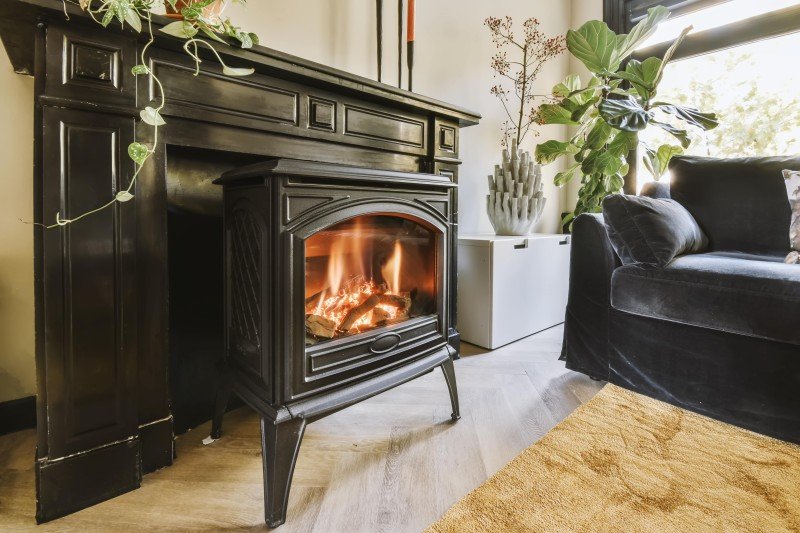Best Value Fireplaces: An In-Depth Guide
The fireplace has actually long been considered as the heart of a home, offering heat, ambiance, and a focal point for celebrations. Nevertheless, browsing through Buy Fireplaces Online can be overwhelming, specifically with budget plan constraints in mind. This article presents a useful guide on the very best value fireplaces, detailing their types, functions, and advantages to assist house owners make a sensible option.
Types of Fireplaces
Fireplaces are available in a variety of designs and types, each with different attributes, expenses, and benefits. Here's an in-depth look at the most typical types of fireplaces offered in the market today.
| Type of Fireplace | Description | Average Cost | Pros | Cons |
|---|---|---|---|---|
| Wood-Burning | Burn logs to create heat and ambiance. | ₤ 1,500 - ₤ 5,000 | Authentic experience, natural heat | Requires routine upkeep, less efficient |
| Gas Fireplaces | Utilizes natural gas or propane to produce heat. | ₤ 2,000 - ₤ 5,000 | Easy to use, cleaner than wood | Restricted to gas supply, setup expenses |
| Electric Fireplaces | Replicates flames with LED technology and produces heat by means of electrical power. | ₤ 200 - ₤ 3,000 | Easy installation, installation flexibility | Less genuine feel, greater operating expense |
| Pellet Stoves | Usage compressed wood or biomass pellets, supplying an environment-friendly option. | ₤ 3,000 - ₤ 4,500 | Efficient, low emissions | Needs electrical power to run, needs storage for pellets |
| Ethanol Fireplaces | Burns ethanol fuel, producing flames that don't need a chimney. | ₤ 300 - ₤ 2,500 | No vents needed, portable | Higher fuel cost, safety issues |
Factors to Consider When Choosing a Fireplace
Selecting the right fireplace is not almost aesthetic appeals; it likewise includes practical considerations. Here are vital aspects to bear in mind:
1. Spending plan
- Figure out how much you want to invest. Keep in click for source that installation and maintenance expenses can accumulate.
2. Area and Size
- Guarantee the fireplace fits well within the space, thinking about both the space available and the heating requirements.
3. Fuel Type
- Choose on the fuel source based upon schedule, cost, and the kind of ambiance you wish to achieve.
4. Efficiency
- Go with systems with high-efficiency scores to ensure you are getting the most value for your cash in regards to heat output.
5. Aesthetic Appeal
- Select a style and design that complements existing decoration and enhances the overall appeal of the area.
6. Laws
- Know regional policies, allows, and structure codes that may impact your fireplace setup.
Top Best Value Fireplaces
Based on client evaluations, specialist opinions, and total value for money, here are some of the best value fireplaces presently offered in the market:
1. DuraVent Pellet Stove
- Type: Pellet
- Average Cost: ₤ 2,000
- Highlights: Highly efficient with low emissions, making it an outstanding alternative for environmentally-conscious property owners.
2. Napoleon B36NTR-1
- Type: Gas
- Average Cost: ₤ 2,500
- Highlights: This fireplace is visually attractive and extremely efficient, with a sleek design and adjustable flame.
3. Duraflame Electric Heater Stove
- Type: Electric
- Average Cost: ₤ 200
- Highlights: Affordable and portable, ideal for smaller spaces or adding atmosphere to a room without irreversible installation.
4. Genuine Flame Juliet Gel Fireplace
- Type: Ethanol
- Average Cost: ₤ 300
- Highlights: A stylish alternative for modern spaces that requires no venting, making it flexible and simple to install.
5. Vogelzang VG5790
- Type: Wood-Burning
- Average Cost: ₤ 800
- Emphasizes: Offers a traditional wood-burning experience with a sleek modern design, best for those who cherish the traditional ambiance.
Often Asked Questions (FAQs)
Q1: What is the most economical fireplace choice?
A1: Electric fireplaces tend to be the most affordable in regards to preliminary purchase price and setup, however can have greater operating costs compared to gas or pellet systems.
Q2: Are gas fireplaces safer than wood-burning fireplaces?
A2: Yes, gas fireplaces generally produce less emissions and position a lower danger of chimney fires as they do not produce creosote like wood-burning systems.
Q3: Can I set up a fireplace myself?
A3: While some electric fireplaces permit simple self-installation, other types, especially gas and wood-burning designs, usually require professional installation due to venting and security concerns.
Q4: How do I keep my fireplace?
A4: Regular maintenance consists of cleaning the chimney (for wood-burning fireplaces), checking for gas leakages (in gas units), and ensuring correct ventilation for electric models.
Q5: Is an ethanol fireplace a good choice?
A5: Ethanol fireplaces are appealing for their modern design and ease of installation. However, they can be less efficient and more expensive to run long-lasting compared to other fuel types.
Choosing a value fireplace that fulfills your visual preferences and practical requirements includes thorough research and factor to consider. By understanding different types of fireplaces, their associated expenses, and advantages, house owners can make informed decisions that will not just fit their spending plan but also improve the warm and inviting environment of their homes. Whether choosing an electric, gas, wood-burning, pellet, or ethanol design, the best fireplace awaits to transform your living space.

